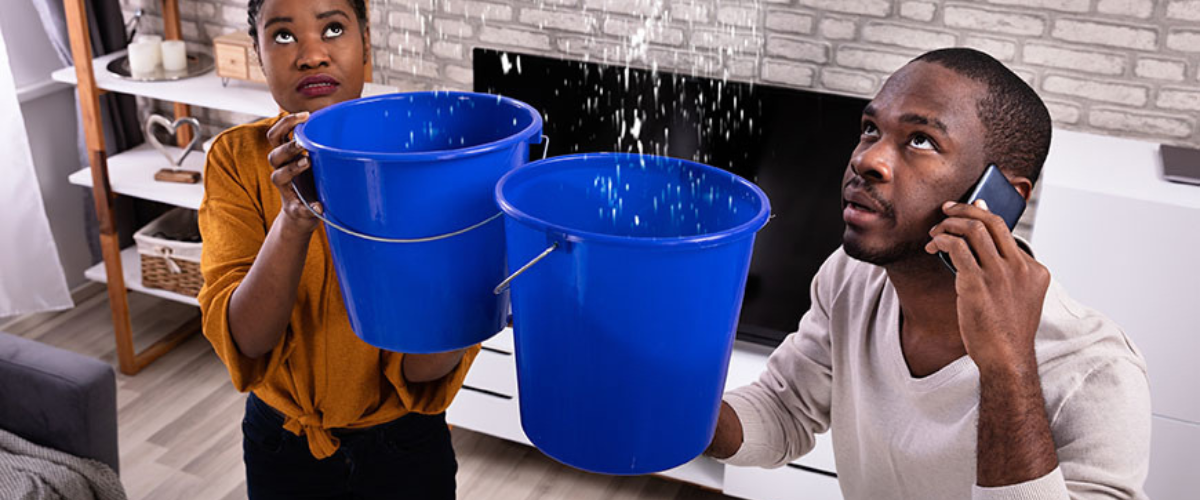
Haunted houses may be a fun Halloween pastime, but living in one is an entirely different thing. No, we’re not referring to the paranormal or those terrifying scenes that conjure thoughts of your favorite scary movie. We’re talking about a house that’s got bigger problems.
When you’re buying a home, the last thing you want is to move in and discover there were monsters lurking in the shadows all along. That’s why the home inspection is a crucial step in the homebuying process. It’s intended to peel back the cobwebs and shed light on the not-so-obvious issues that could be detrimental to your investment. To save yourself from a costly nightmare in the future, be on the lookout for any of these major problems during your home inspection.
While it's not mandated by law, it’s in your best interest to get the standard inspections done when purchasing a home. If the offer includes an inspection contingency, it gives you the opportunity to back out of the deal or renegotiate, should you find any major issues.
Water damage can wreak havoc on a home. It can cause mold growth, which is expensive and difficult to remediate. It can also create foundation problems that threaten your home’s structural integrity. On the exterior, look for drainage problems such as water pooling near the home or a flooded yard. Also, check for wood rot around door frames and windows. Inside the home, watch out for peeling paint, swollen drywall, large cracks in ceilings and walls, and musty smells.
Structural issues aren’t just costly to repair; they’re also dangerous. While some settling is natural, significant shifting of the house can indicate your foundation wasn’t laid properly or that other structural dilemmas have developed. Common signs of structural problems include cracks in walls and ceilings, cracks in the chimney or exterior masonry, sagging or sloping floors, and doors and windows that won’t close.
A good roof should last you 20+ years, but if you spot signs that it’s damaged or nearing the end of its lifespan, proceed with caution. The average cost to new install new architectural shingles on a 2,000-square-foot house ranges from $7,400 to $10,500.* Look for the following red flags: curling, cracked, or missing shingles; loose or rusted flashing; dark patches on the roof; mold and moss; a sagging roof; and water stains in the attic or on the ceiling.
When you see flickering lights in a movie, you know something bad is about to happen. When you see lights that flicker, buzz, or dim in your future home, it should strike the same fear in you. Fires caused by faulty electrical wiring are a real threat, so a proper electrical inspection is a must. Some warning signs to look for include outlets that are warm to the touch or have scorch marks; ungrounded receptacles; GFCI outlets that malfunction; a breaker or fuse box that’s emitting an odd odor; and damaged or frayed wires. If you’re buying an older home with knob and tube wiring, most insurance companies won't insure the home unless you get it replaced, which adds a substantial expense to your homebuying budget.
Poor plumbing is a health and safety concern, and there are several things to look out for. First, check out the type of pipes installed. Galvanized pipes, which are found in older homes, corrode over time and can expose you to lead in your drinking water. Polybutylene (PB) pipes also corrode and are prone to failure. Next, check for signs of leaks, which can cause mold growth, dry rot, and structural damage to the home. And don’t dismiss something like low water pressure or a leaky faucet; it could indicate a pipe blockage or that there are poorly sized pipes installed. Be sure to have the sewer lateral inspected for root growth and other obstructions that prevent the free flow of sewage away from the home and to the sewer main.
Whether it’s a ghost or a rodent, no one wants unwanted visitors taking up residence in their new home. While some pests can be mitigated with the help of an exterminator, it can be pricey (and a nuisance). More serious infestations, like termites, should be an instant red flag as they cause serious structural damage. In many cases, your mortgage may not be approved if termite damage is discovered. Other problem pests include carpenter ants, cockroaches, wasps, and mice, among others.
Your inspector should be skilled at identifying general issues with the home, but for the best results, consider calling in experts who specialize in the specific areas mentioned above.
*Source: HomeAdvisor
Experience the Northwest Bank difference--the better banking experience. Contact us today and let's build a brighter financial future together!
Mon - Fri: 7:00 AM - 7:00 PM CST
Sat: 8:00 AM - 12:00 PM CST
General Support: 800-678-4105